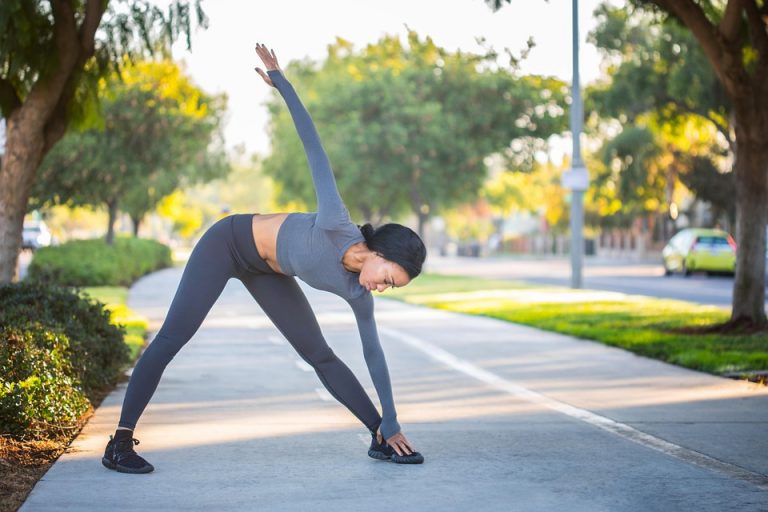Yoga is more than just a series of poses; it’s a holistic journey that intertwines your body, mind, and spirit. To truly enhance your yoga practice, nourishing your body with the right foods is essential.
In this article, we’ll explore seven essential foods for your yoga practice that will fuel your energy, enhance your flexibility, and support your overall well-being.
Contents
- Why Nutrition Matters in Your Yoga Practice
- 1. Leafy Greens: The Powerhouses of Nutrition
- 2. Nuts and Seeds: Crunchy Energy Boosters
- 3. Quinoa: The Complete Protein
- 4. Berries: Nature’s Sweet Treat
- 5. Sweet Potatoes: The Energy Source
- 6. Greek Yogurt: Creamy and Protein-Rich
- 7. Avocado: The Creamy Superfood
- How to Combine These Foods for Optimal Benefits
- Mindful Eating: The Final Ingredient
- The Bottom Line
- Frequently Asked Questions
Why Nutrition Matters in Your Yoga Practice
Your body deserves the best fuel. What you eat can significantly affect your energy levels, concentration, and even your flexibility on the mat. Consuming the right foods can enhance your performance and help you achieve a deeper mind-body connection during your practice.
By choosing nourishing foods, you’re setting the stage for a fulfilling yoga experience. Let’s dive into the seven foods that can transform your practice from good to extraordinary!
1. Leafy Greens: The Powerhouses of Nutrition
Leafy greens are your best friends. Spinach, kale, and Swiss chard are packed with vitamins, minerals, and antioxidants. They support muscle function, boost your immune system, and provide a steady source of energy.
- Why they matter: These greens are rich in magnesium, which helps in muscle relaxation and recovery. Perfect for post-yoga restoration!
- How to incorporate: Toss them into a smoothie, add them to salads, or sauté them as a side dish.
2. Nuts and Seeds: Crunchy Energy Boosters
Nuts and seeds are small but mighty. Almonds, walnuts, chia seeds, and flaxseeds offer a perfect blend of healthy fats, protein, and fiber. They’re ideal for sustaining energy levels during your practice.
- Why they matter: These foods are loaded with omega-3 fatty acids, which reduce inflammation and improve joint health.
- How to incorporate: Snack on a handful before class or sprinkle them on your morning oatmeal.
3. Quinoa: The Complete Protein
Quinoa is more than just a trendy grain; it’s a complete protein, meaning it contains all nine essential amino acids. This makes it an excellent choice for fueling your body before or after yoga.
- Why it matters: It provides a good balance of carbohydrates and protein, making it perfect for muscle recovery.
- How to incorporate: Use it as a base for salads or mix it into your favorite stir-fry.
4. Berries: Nature’s Sweet Treat
Berries like blueberries, strawberries, and raspberries are not just delicious; they are also packed with antioxidants. These tiny fruits can boost your immune system and help reduce inflammation.
- Why they matter: They are low in calories but high in essential nutrients, making them a guilt-free snack.
- How to incorporate: Add them to your yogurt, smoothies, or enjoy them on their own as a refreshing treat.
5. Sweet Potatoes: The Energy Source
Sweet potatoes are more than just a comfort food; they’re a fantastic source of complex carbohydrates, which provide lasting energy. They’re also rich in vitamins A and C.
- Why they matter: The fiber content helps keep you full and satisfied, making them an excellent pre-yoga meal option.
- How to incorporate: Bake them, mash them, or add diced sweet potatoes to soups and stews.
6. Greek Yogurt: Creamy and Protein-Rich
Greek yogurt is an excellent source of protein and probiotics, which are great for gut health. It can also aid in muscle repair and recovery.
- Why it matters: The probiotics help balance your digestive system, which is crucial for overall wellness.
- How to incorporate: Enjoy it as a snack with honey and nuts, or blend it into a smoothie for added creaminess.
7. Avocado: The Creamy Superfood
Avocados are not just trendy; they’re a nutrient-dense food loaded with healthy fats. They help in nutrient absorption and provide a creamy texture to meals.
- Why they matter: The monounsaturated fats support heart health and keep you feeling satiated.
- How to incorporate: Spread on whole-grain toast, toss into salads, or blend into smoothies for a creamy boost.
How to Combine These Foods for Optimal Benefits
Now that you know the seven essential foods for your yoga practice, let’s talk about how to combine them for maximum benefit. Here are some ideas:
- Power Breakfast: Start your day with a smoothie made from spinach, Greek yogurt, a banana, and berries.
- Nourishing Lunch: Prepare a quinoa salad topped with chopped leafy greens, diced sweet potatoes, and a sprinkle of nuts.
- Post-Yoga Snack: Enjoy a bowl of Greek yogurt topped with berries and a drizzle of honey.
Mindful Eating: The Final Ingredient
As you nourish your body with these essential foods, don’t forget the importance of mindful eating. Pay attention to your body’s hunger and fullness cues. Take time to savor each bite and appreciate the flavors and textures of your food.
Mindful eating can enhance your yoga practice by grounding you and helping you connect with your body on a deeper level.
The Bottom Line
Incorporating these seven essential foods for your yoga practice will not only enhance your performance on the mat but also contribute to your overall well-being.
So, the next time you prepare a meal or snack, think about how you can nourish your body to support your yoga journey.
Make these foods a regular part of your diet, and watch how they transform your practice.
Frequently Asked Questions
1. How soon before yoga should I eat?
Aim to eat a light meal or snack about 1-2 hours before class.
2. Can I eat these foods after yoga?
Absolutely! These foods are great for recovery and replenishing energy.
3. Are there any foods I should avoid before yoga?
Heavy, greasy foods and high-sugar snacks may leave you feeling sluggish.
Now that you’re equipped with these essential foods, embrace the journey ahead. Your body and mind will thank you!
Get Your FREE Natural Health Guide!
Subscribe now and receive our exclusive ebook packed with natural health tips, practical wellness advice, and easy lifestyle changes, delivered straight to your inbox.





